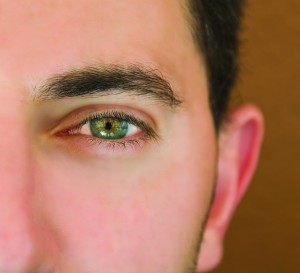 When you think of all the things you need to keep track of in order to stay healthy, do your eyes come to the top of the list? If not, they should! Eye diseases and injuries can be serious. If left untreated, they can lead to reduced vision or blindness. Your eye health is also connected to your overall health in some ways you may not expect.
When you think of all the things you need to keep track of in order to stay healthy, do your eyes come to the top of the list? If not, they should! Eye diseases and injuries can be serious. If left untreated, they can lead to reduced vision or blindness. Your eye health is also connected to your overall health in some ways you may not expect.
AGE-RELATED MACULAR DEGENERATION (AMD)
CATARACTS
DIABETIC RETINOPATHY
EYE INJURIES
GLAUCOMA
RETINAL VEIN OCCLUSIONS
Common Vision Conditions
Nearsightedness:
Also known as myopia, this is a condition where close objects appear clearly but far-away objects are blurry. Nearsightedness affects nearly 30% of the U.S. population and typically occurs first in children. However, adults can also develop nearsightedness.
Farsightedness:
Also known as hyperopia, this is a condition where objects in the distance appear clearly but close objects are blurry. Farsightedness is also common but does not always cause significant trouble with day-to-day activities.
Astigmatism:
This is another very common vision condition that can cause distorted or blurry vision, headaches and discomfort in your eyes. Astigmatism often occurs with other conditions such as nearsightedness and farsightedness.
Presbyopia:
This is a common condition that occurs with age when the lens of the eye gradually loses its flexibility. Presbyopia makes it difficult to focus on objects up close.
If you are having trouble seeing clearly, the best thing you can do is see an eye care professional. They will perform an eye exam to determine what might be causing the vision problem. In many cases, conditions including nearsightedness, farsightedness and astigmatism can be addressed with glasses or contact lenses. You can also talk to your eye healthcare provider about other corrective options for your vision including laser surgery.